Tattoo Allergy: Causes, Types, & How To Identify
Do not let tattoo allergies surprise you. Learn what you need to know to stay safe.
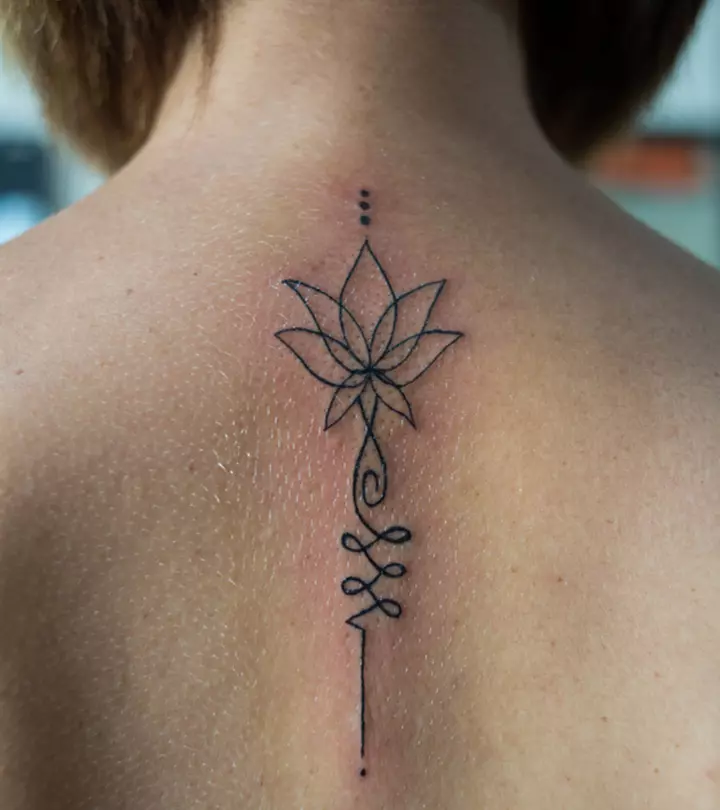
Image: Shutterstock
If you are considering getting a permanent tattoo or already got one recently, it is important to be aware of the possibility of a tattoo allergy. The symptoms of this allergic reaction can vary from person to person and understanding it is crucial for maintaining your skin health. In this article, we will explore the different causes of tattoo allergies and provide insights on how to identify and treat them. Whether you are a tattoo enthusiast or planning to get inked for the first time, recognizing the signs of a potential tattoo allergy is essential for a safe and enjoyable experience. Scroll down to ensure that your body art journey is smooth and effortless.

In This Article
What Is A Tattoo Allergy?
An allergic reaction to the tattoo ink or pigments may cause discomfort at the tattoo site. The immune system may recognize these components as foreign bodies, leading to an allergic response. The tattoo ink itself can cause immune reactions like a tattoo rash or exacerbate existing skin conditions. Plus, excessive exposure to light may also result in irritation. Although tattoo allergies are uncommon, they can have serious health implications. Skin reactions may occur immediately or manifest after 48 hours, weeks, or even months.
The initial allergy symptoms may be mistaken for normal tattoo healing. Check out the next section to learn about its symptoms for a quick response.
Key Takeaways
- Allergic reactions to tattoo ink can cause symptoms such as redness, swelling, itching, irritation, and bumps.
- Ink composition, color allergies, and improper aftercare practices are some of the causes of tattoo allergies.
- Tattoo allergies result from responses to ink or pigments, while infections stem from bacterial contamination of the tattoo site.
- Treatments include non-prescription medications, topical ointments, and antihistamines to alleviate allergic tattoo reactions.
How To Identify A Tattoo Allergy

Check for adverse skin reactions and the following symptoms to identify a tattoo allergy:
- Increased redness
- Swelling
- Itching
- Rashes or bumps
- Flaky skin
- Pain
- Fluid discharge
- Bad odor
- Nodules or skin tags
- Fever, hot flashes, or chills
Also, the area may feel tender and warm to the touch and may take longer to heal. The factors behind a hypersensitivity reaction to tattoos will help determine the type of treatment you can opt for. Scroll down to the next section to know more.
Causes Of A Tattoo Allergy
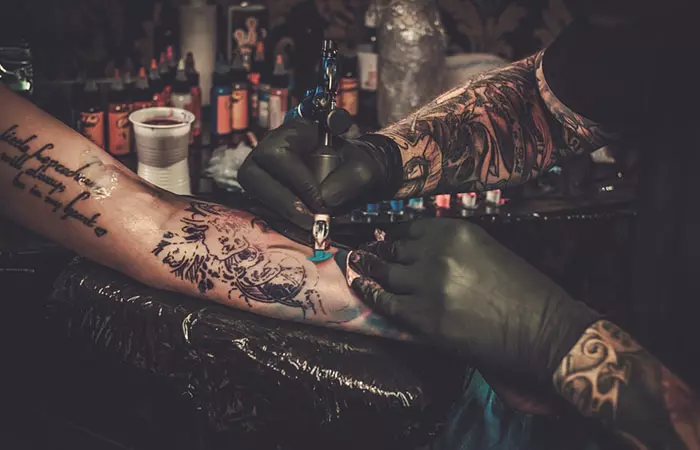
Allergic reactions are common tattoo side effects, and any of the following factors can trigger them.
1. Ink Composition
Tattoo inks come in a variety of compositions, each containing different pigments and additives. Moreover, tattoo inks often contain inorganic or organic pigments or a mixture of both types. Individuals may develop an allergic reaction or a sensitivity to the specific pigments or chemical compounds present in the ink.
2. Metallic Components
Some tattoo inks incorporate heavy metals such as nickel, cobalt (found in blue pigments), and other ingredients such as iron oxides and chromium oxides. These metals can trigger allergic responses in certain individuals, causing discomfort and skin-related issues.
3. Allergic Reactions To Specific Colors
Allergies may manifest in response to particular colors used in tattoos. For instance, red pigments are known for inducing allergic tattoo reactions in some individuals.
4. Impurities In Inks
The presence of contaminants in tattoo inks may contribute to allergic reactions. Poor-quality inks or inadequately sterilized inks may introduce foreign bodies into the skin that may cause adverse effects.
5. Pre-existing Skin Conditions
Individuals with pre-existing skin conditions such as eczema or psoriasis may be more susceptible to developing allergic reactions to tattooing. The compromised skin barrier in these conditions may increase the risk.
6. Sensitivity To Sunlight
Certain tattoo pigments, especially yellow pigments, can cause reactions when exposed to UV rays and exacerbate allergic responses in some individuals, necessitating sun protection for tattooed areas.
7. Inadequate Aftercare
Improper care during the tattoo healing process can increase the risk of infections and allergic reactions. Following recommended aftercare practices is crucial for minimizing their likelihood.
8. Skin Trauma Or Irritation
Aggressive tattooing techniques or excessive irritation during the healing process can contribute to allergic reactions. Hence, looking after the tattoo properly is essential to prevent unnecessary trauma and subsequent skin issues.
9. Immune System Response
Individuals with hyperactive immune systems may be more prone to experiencing allergic, itchy tattoos. The body’s immune response can perceive tattoo pigments as foreign substances, triggering allergic symptoms.
10. Repeated Exposure To Tattoo Inks
Individuals with multiple tattoos may be at a higher risk of developing allergies due to constant exposure to tattoo inks over time. The repeated introduction of ink into the skin can increase the likelihood of adverse reactions as it exposes them to common allergens present in the inks. Moreover, the trauma caused by repeatedly piercing the skin with needles may also trigger inflammatory responses and allergic reactions.
 Quick Tip
Quick TipIn the majority of cases, the allergy is usually triggered by a specific tattoo ink color. Learn more about it in the following section.
Tattoo Ink Colors That May Cause Allergies
1. Red Tattoo Ink Allergies
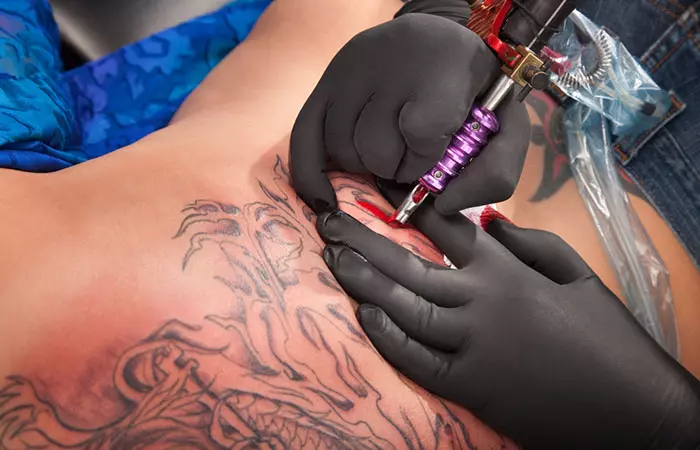
Allergic reactions frequently stem from red tattoo ink due to the presence of iodine. Notably, irritation tends to manifest in specific regions of the tattoo adorned with red-pigmented tattoos.
2. Yellow Tattoo Ink Allergies
Yellow tattoo ink is another common trigger for allergic reactions, and its composition may lead to heightened sensitivity to sunlight. Hence, shield your yellow tattoos from UV rays. However, over time, the initial sensitivity may diminish.
3. Black Tattoo Ink Allergies
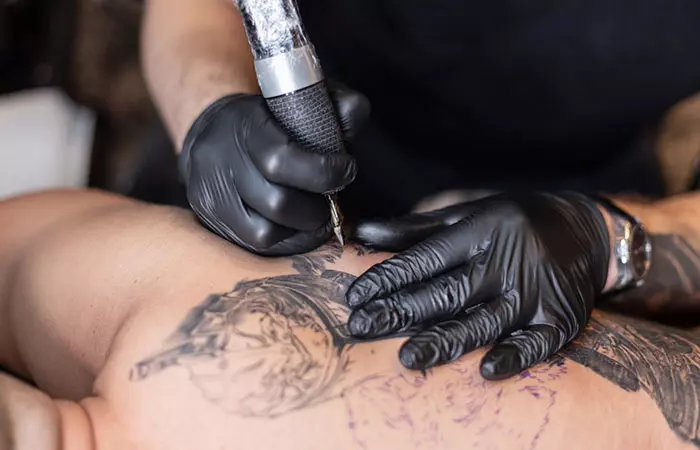
An allergy to black tattoo ink may occur due to carbon-based pigments present in the ink. While less common than red ink allergies, potential issues can arise over time as the black pigment particles break down.
4. Blue Tattoo Ink Allergies
The presence of minerals such as sodium, aluminum, silicate, or azurite in blue ink may increase the risk of an allergic reaction. Awareness of these mineral-based ingredients is crucial to understanding and managing potential allergies.
5. Other Color Ink Allergies

Although red, yellow, black, and blue inks are commonly linked to allergies, you may develop allergic reactions to any tattoo color. The diverse ingredients in tattoo inks increase the number of potential allergens. Therefore, you must be cautious when getting colorful tattoos.
Note: Engage in a detailed discussion with your tattoo artist and consider a patch test to decrease the likelihood of tattoo allergies. Also, consult a dermatologist to help evaluate the risks and manage potential allergies.
 Quick Tip
Quick TipA tattoo allergy and an infection are often confused due to the similar symptoms they exhibit. However, there are key differences between the two. Find out more in the next section.
Tattoo Allergy Vs. Infection
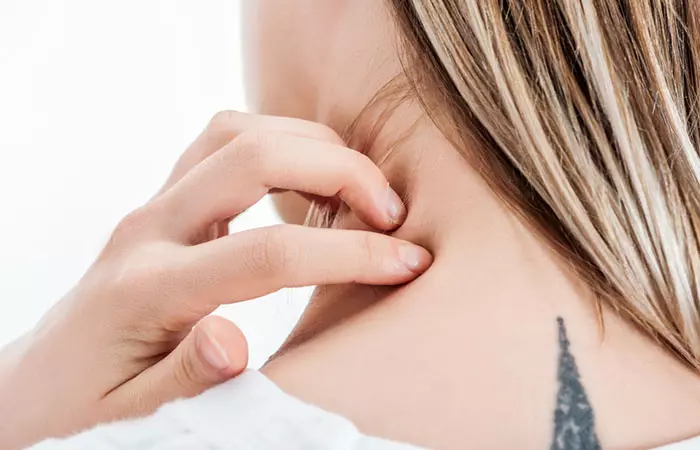
Tattoo Allergy
Tattoo allergies are reactions to the tattoo ink or pigments. Common types of allergic reactions include itching, redness, swelling, rashes, and scaly skin around the tattooed area. These reactions typically develop days or weeks after getting a tattoo and are often localized to the specific area and the skin around the tattoo. Allergic complications can be linked to specific ink colors or their components, making it important for individuals to identify the triggering factors for future prevention.
Tattoo Infection
, on the other hand, result from bacterial contamination of the tattoo site. Infection symptoms include redness, warmth, pus formation, fluid buildup, and pain in the tattooed area. The symptoms generally surface within a few days to weeks after getting a tattoo and may extend beyond the immediate tattooed area. Inadequate aftercare practices or an unclean tattoo procedure usually contribute to bacterial infections. In severe cases, the infected tattoo may require extensive medical treatment. Hence, distinguishing between an allergic reaction and an infection is crucial for appropriate and timely medical intervention.
When a tattoo takes longer than usual to heal, it might indicate an infection. Sam, a YouTuber, shared her experience with a tattoo infection in her video. She says, “Five days after I got my tattoo done I think I actually started noticing the tattoos not healing too well.” She further explains, “You know you can see some bits of skin fall off that’s normal, but this has some icky bits on it (i).” She went to the doctor, who confirmed that her tattoo was infected.
It’s important to watch out for symptoms of allergic reactions and infections and consult a doctor. Timely medical intervention goes a long way in ensuring proper healing and preserving your tattoo. Now, to avoid the pain and disfigurement of your cherished body art, consider taking the following precautions mentioned below.
How To Prevent Allergic Reactions On Tattoos
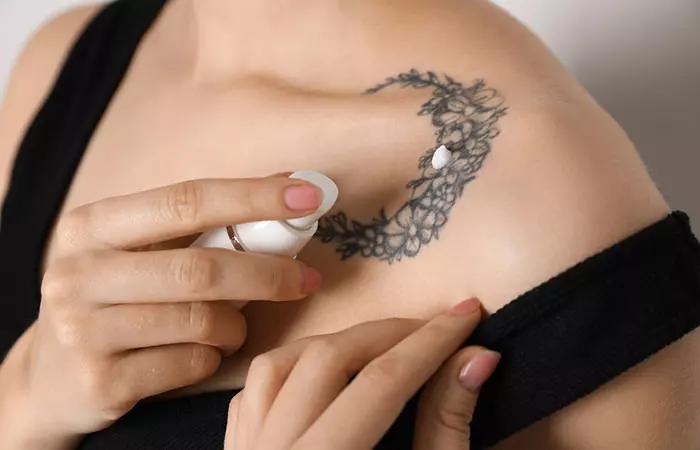
Here are a few things you can do to minimize the risk of tattoo allergies:
- Choose a reputable and experienced tattoo artist and go for hypoallergenic inks.
- Do a patch testing before getting the full tattoo.
- Be aware of existing skin allergies and keep the tattoo artist informed.
- Avoid scented lotions and opt for hypoallergenic moisturizers.
- Follow aftercare instructions for proper healing.
- Monitor for redness, swelling, or rashes around the tattoo.
- Consult an allergist for tattoo ink allergy testing.
- Study the tattoo pain chart and choose tattoo locations wisely based on skin sensitivity.
- Maintain regular skin care and use gentle, hypoallergenic products.
- Stay away from public swimming pools, beaches, saunas, and gyms during the first 2 weeks after getting a tattoo. It’s because the tattooed area is an open wound and more vulnerable to infections.
The severity and root cause of a tattoo allergy will determine the proper treatment you will receive. Scroll down for the different treatment options available.
Tattoo Allergy Treatment
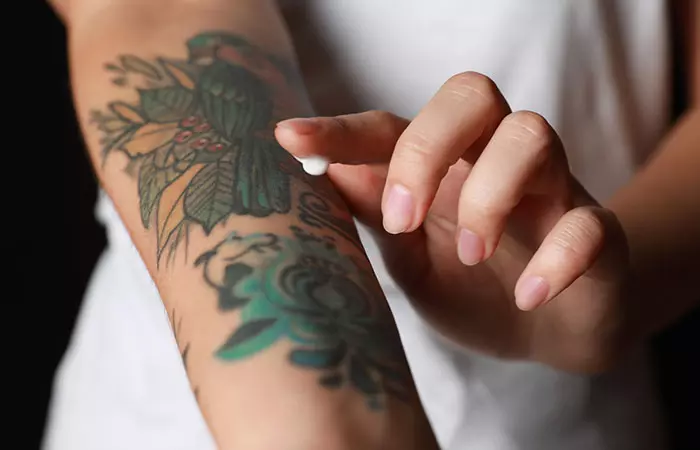
The treatment for tattoo allergies usually includes the use of topical ointments to reduce inflammation and itching. Antihistamines may also be recommended to alleviate allergic tattoo reactions. Additionally, applying a cold compress to the affected area can help reduce swelling and soothe the skin. Some people may also experience relief with alternative remedies like aloe vera gel or chamomile tea compresses to soothe inflammation. Dermatologists may suggest using topical steroids, such as hydrocortisone, to minimize irritation and inflammation around the tattooed area. They may also propose laser therapy or cosmetic tattoo removal procedures for more severe cases. Therefore, consult a healthcare professional for personalized advice tailored to the specific allergic reaction and its severity.
Usually, mild tattoo allergies can be managed at home. However, seek immediate medical help if you experience the symptoms mentioned in the next section.
When To See A Doctor

Visit a doctor if you experience:
- Persistent redness, swelling, or itching around the tattoo.
- Hives or a rash after the initial healing phase.
- Pain or discomfort not improving with time.
- Pus, blisters, or any signs of infection.
- Systemic symptoms like fever, chills, or excessive fatigue.
Conclusion
Understanding the potential for tattoo allergies and recognizing signs like redness, swelling, and itching is vital for tattoo enthusiasts. Reactions to ink colors like red, yellow, black, and blue stress the importance of considering specific colors. Moreover, learning how to distinguish between tattoo allergies and infections allows for prompt diagnosis and treatment. Always choose reputable and experienced tattoo artists and hypoallergenic inks to help reduce the risk of developing allergies. Also, knowing about tattoo allergy treatment, such as using over-the-counter solutions or seeking professional help, ensures a safe journey into body art without unwanted reactions.
Frequently Asked Questions
Will a tattoo allergy go away?
Tattoo allergies may improve with time. However, consult a dermatologist for proper evaluation and guidance, especially if you have sensitive skin. Topical treatments or, in severe cases, laser treatment may be recommended.
Can a tattoo trigger an autoimmune disease?
There is no conclusive evidence that suggests tattoos directly trigger autoimmune diseases. However, individuals with autoimmune conditions and skin diseases such as psoriasis, should consult their doctors before getting tattoos due to potential risks.
What is an inflammatory reaction to a tattoo?
An inflammatory reaction to a tattoo, known as dermatitis, involves redness, swelling, and itching. It is often an allergic response to tattoo ink or aftercare products.
How do you know if your tattoo is rejecting ink?
If your tattoo is rejecting ink, you may notice fading or lightening of the tattoo colors, and the lines may appear less defined. Consult a tattoo artist or dermatologist for proper evaluation.
Some thing wrong with illustration image shortcode. please verify shortcode syntax
Navigating a potential allergic reaction to your tattoo can help you get timely medical attention. Check out this video for how to identify tattoo allergies and aftercare instructions for an irritation-free ink journey.
Personal Experience: Source
StyleCraze's articles are interwoven with authentic personal narratives that provide depth and resonance to our content. Below are the sources of the personal accounts referenced in this article.
(i). My Tattoo Infection Experience – Horrifying!https://www.youtube.com/watch?v=uxbqujZWCGo
Read full bio of Jayd Hernandez
Read full bio of Pahul Nanra
Read full bio of Eshna Das
Read full bio of Manjari Uppal







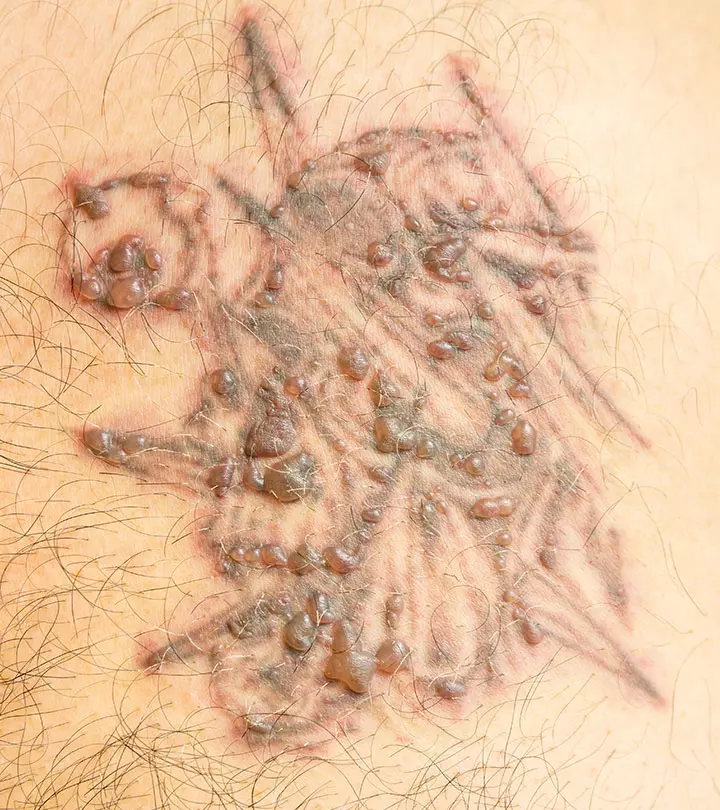


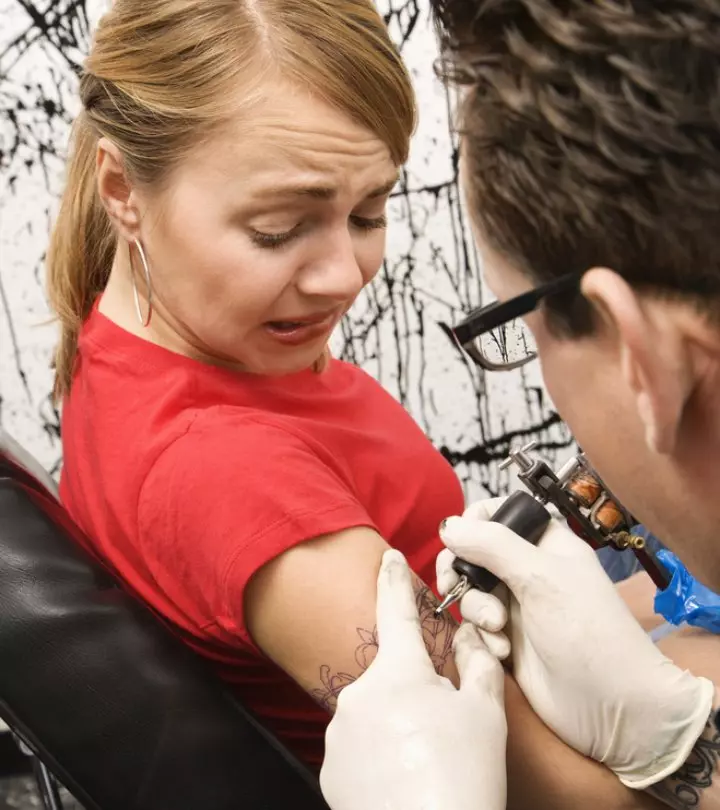
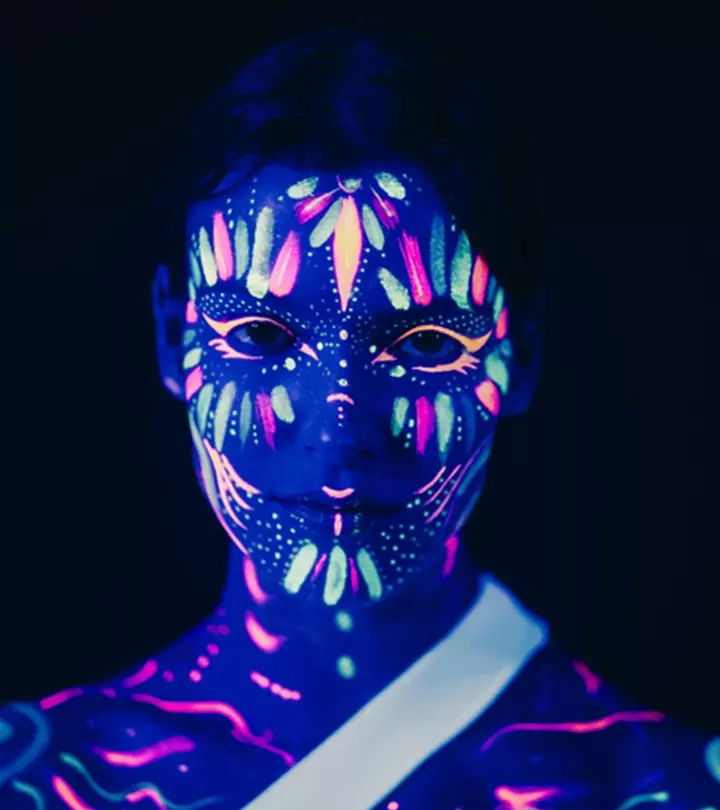
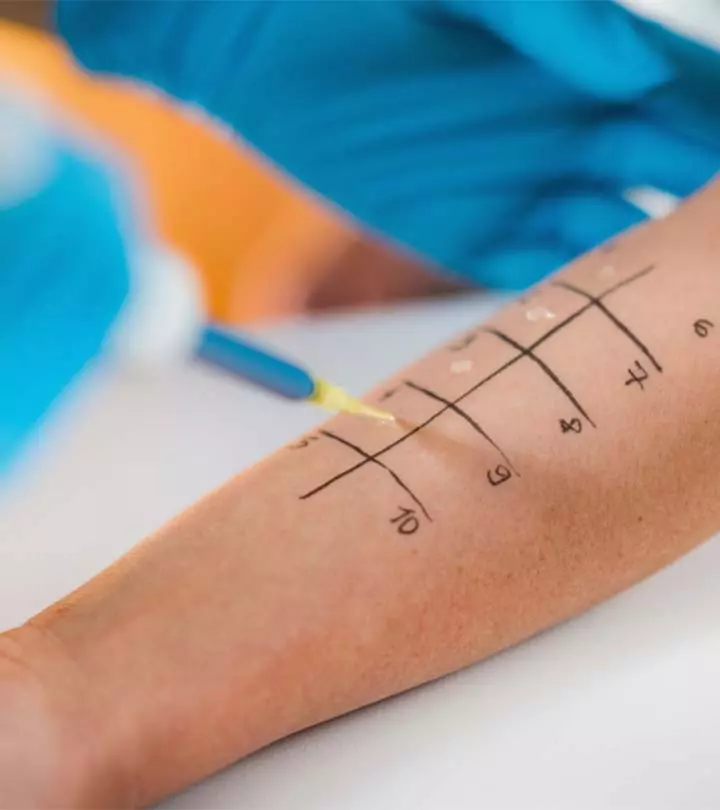
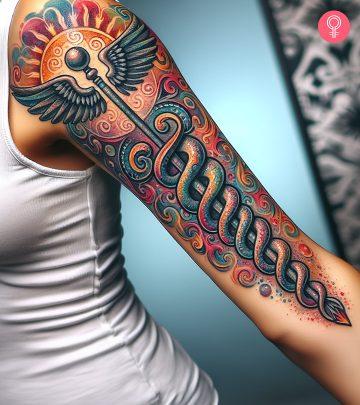

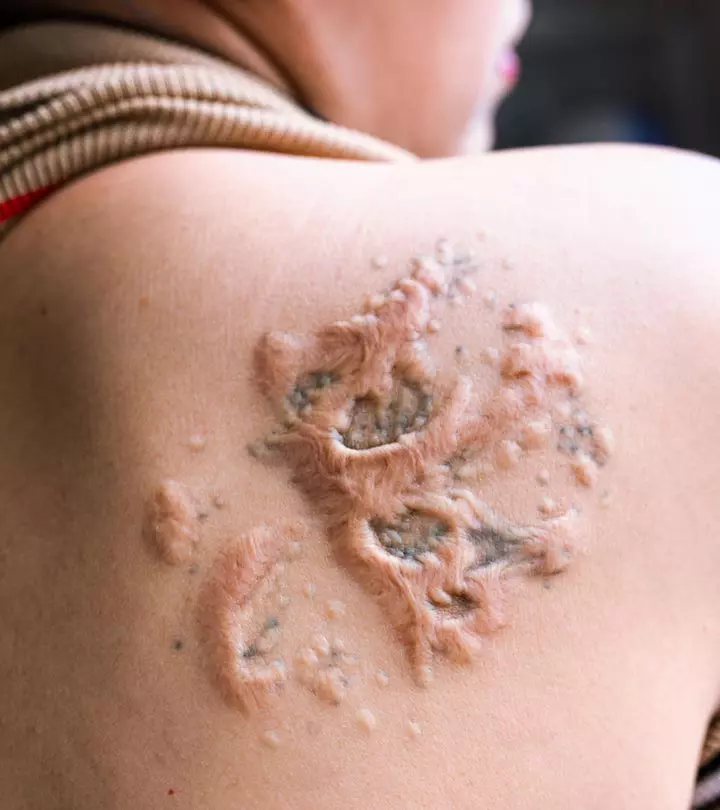

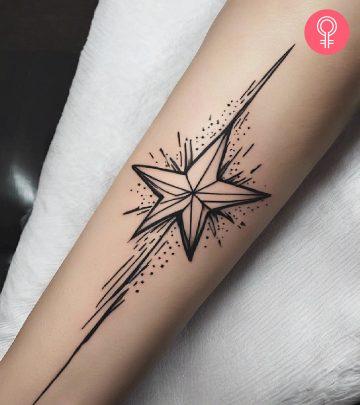
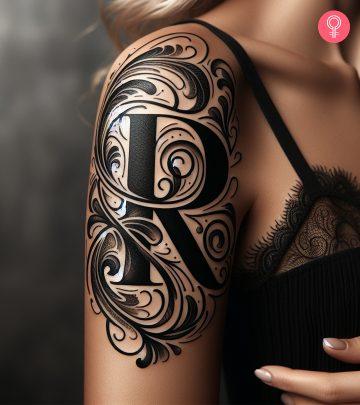

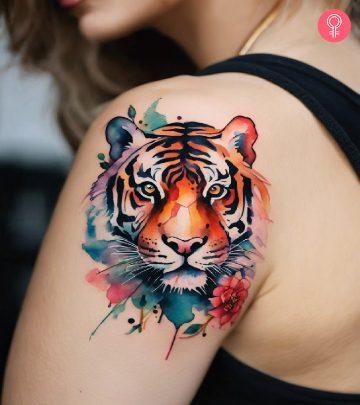
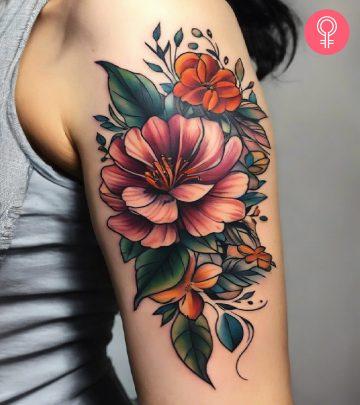

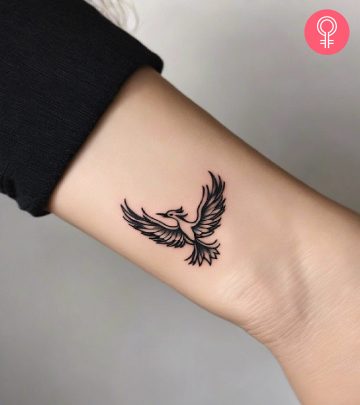
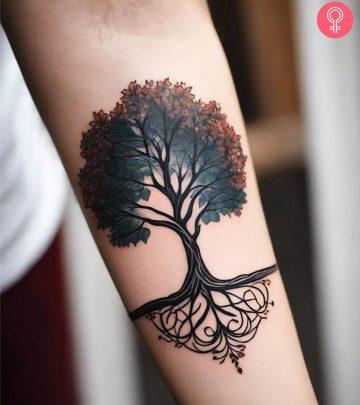
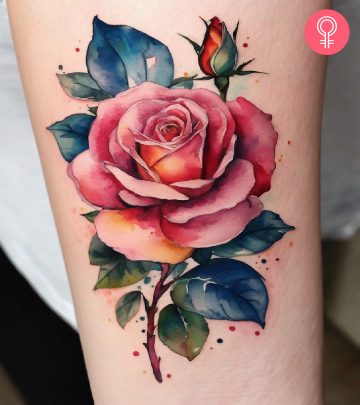
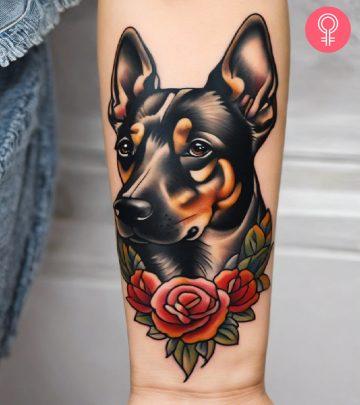
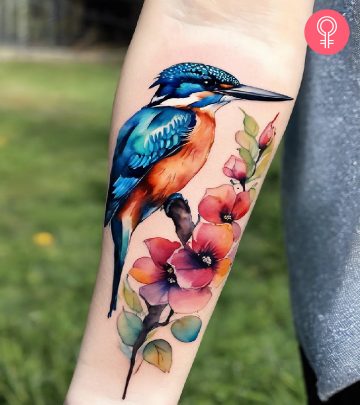
Community Experiences
Join the conversation and become a part of our empowering community! Share your stories, experiences, and insights to connect with other beauty, lifestyle, and health enthusiasts.